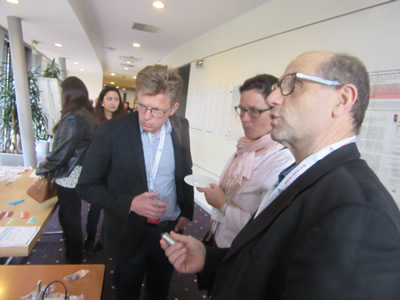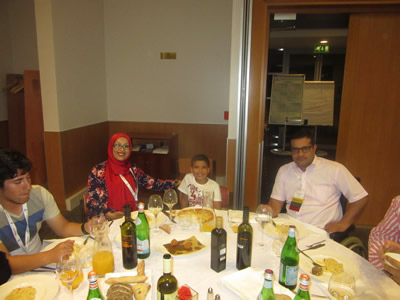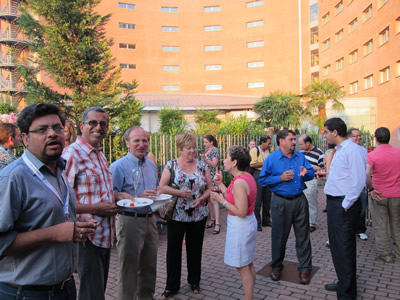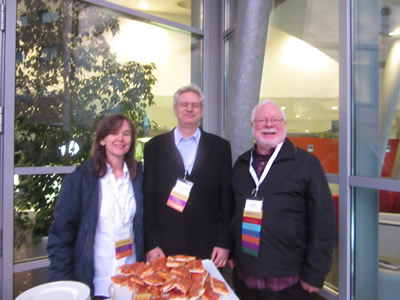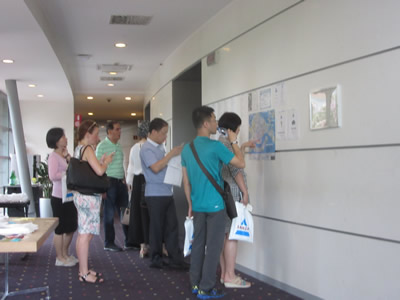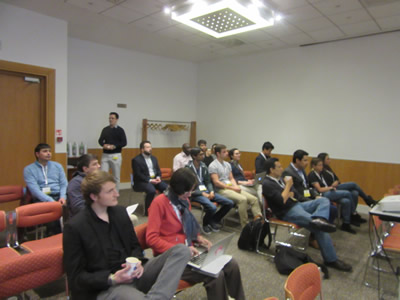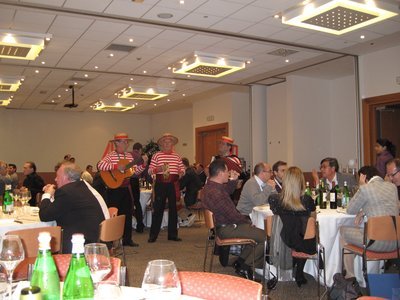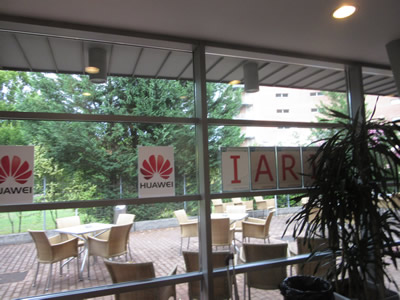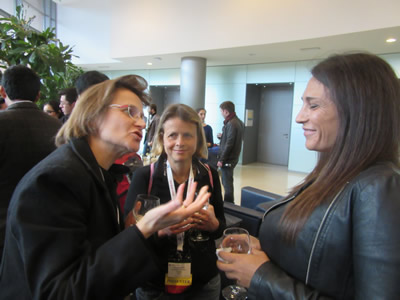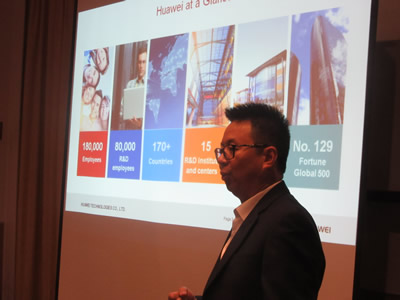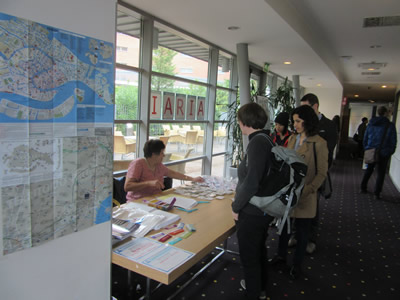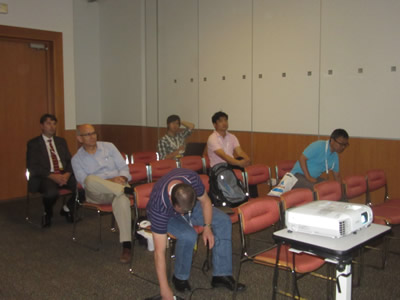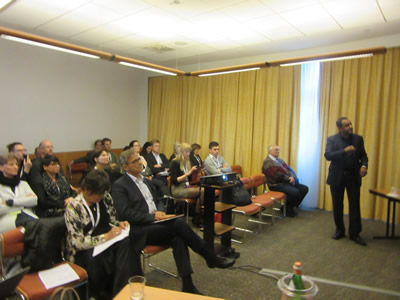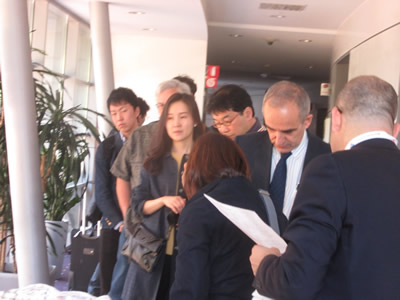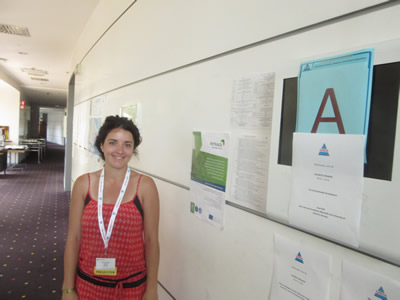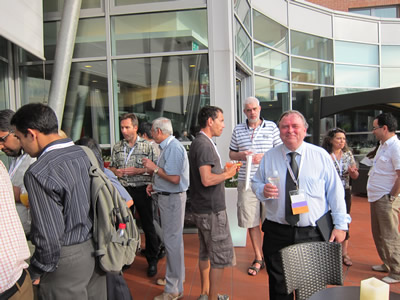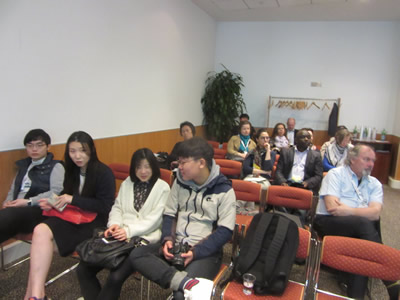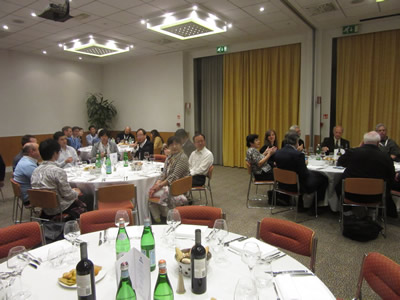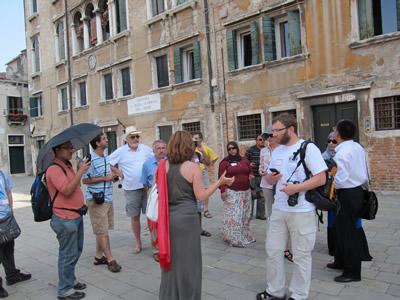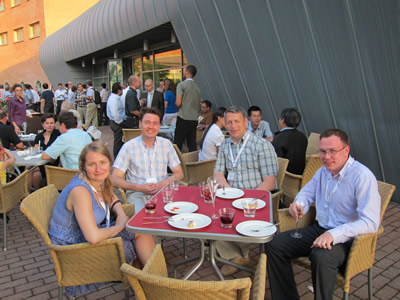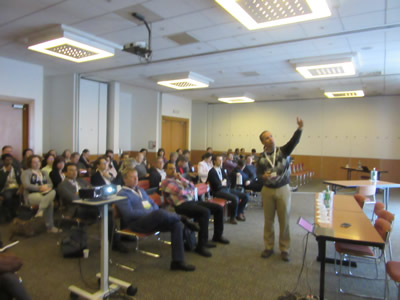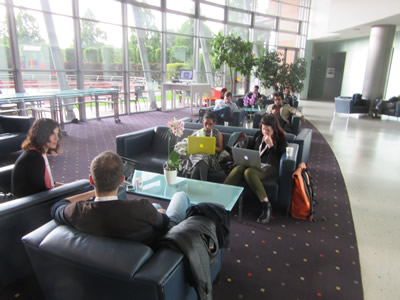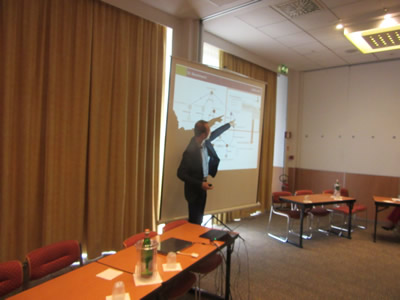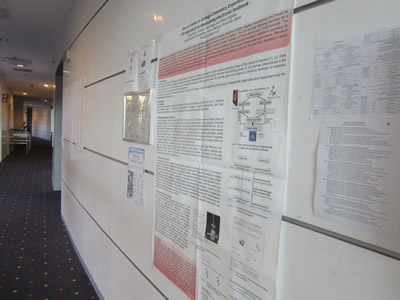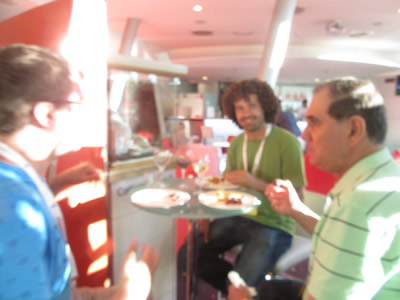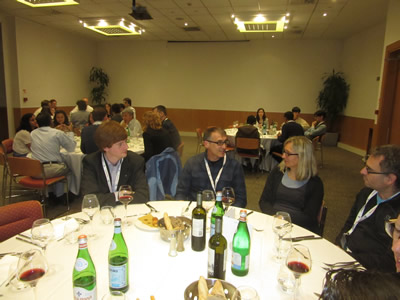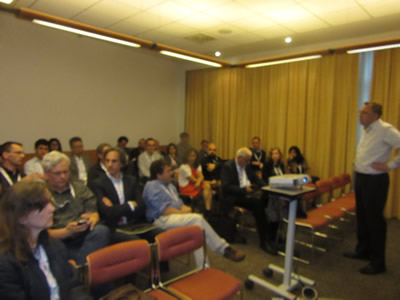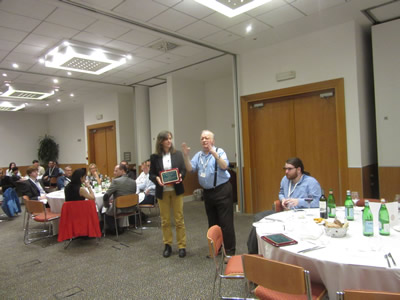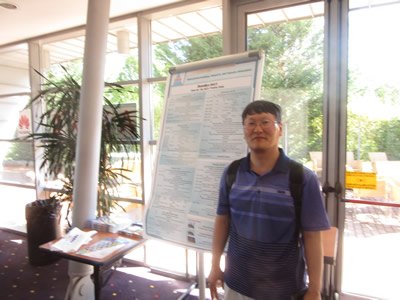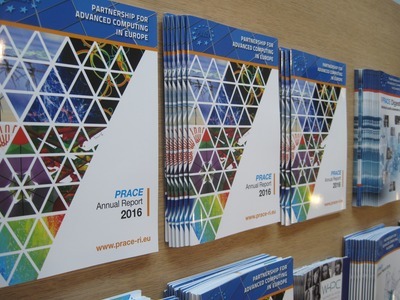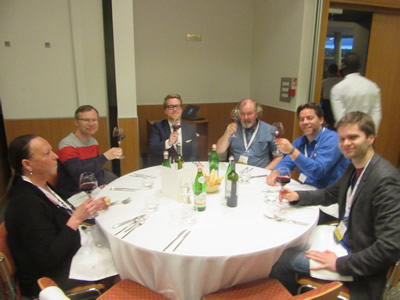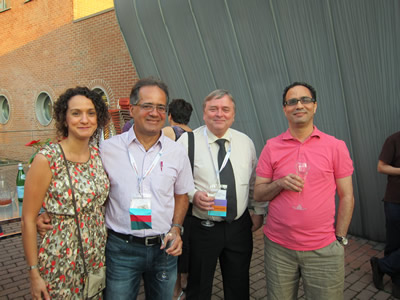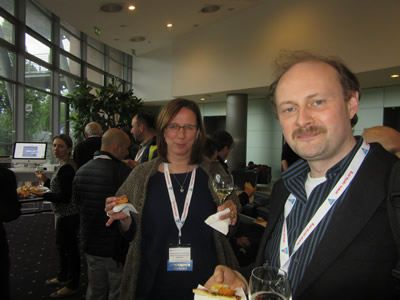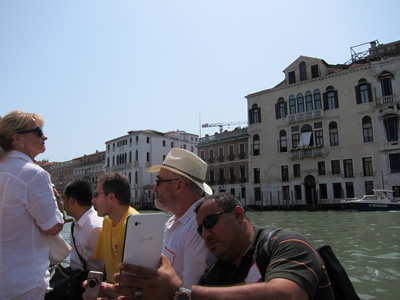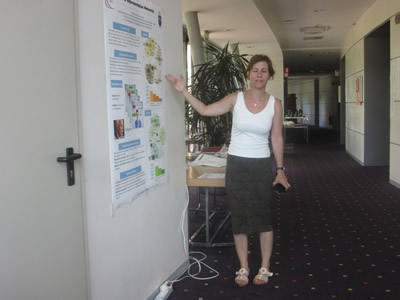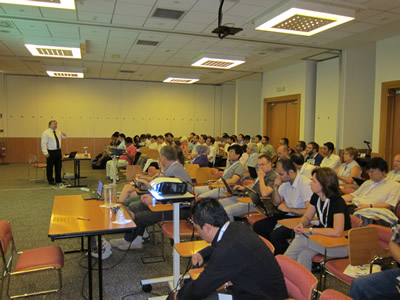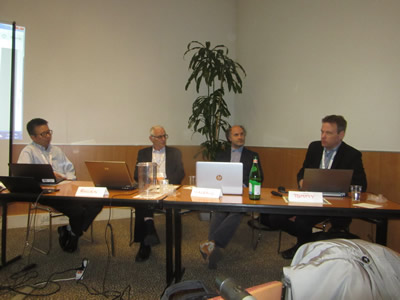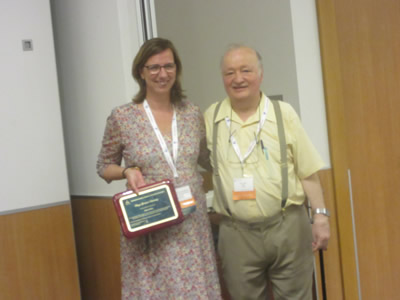AIMEDIA 2025 - The First International Conference on AI-based Media Innovation
July 06, 2025 - July 10, 2025
AIMEDIA 2025: Call for Papers
Onsite and Online Options: In order to accommodate various situations, we are offering the option for either physical presence or virtual participation (pdf slides or pre-recorded videos).
The media landscape is seeing significant transformation thanks to AI capabilities in natural language processing, image recognition, and content generation and consumption. Technological influence is ubiquitous and growing, from automated journalism to personalized content delivery and deepfake detection.
AIMEDIA is an inaugural conference series on AI in Media designed to explore the impact of AI technologies on news production, content creation, media distribution, and audience engagement.
The event focuses on results and discussions that highlight innovative uses of AI in enhancing storytelling, optimizing user experiences, and safeguarding information integrity including ethical considerations.
This conference will delve into cutting-edge research, ethical considerations, and future trends in AI that are driving changes in the media industry and academia curricula. These include film, music, interactive media, immersive environments, and distribution models.
AIMEDIA will serve as an innovative stage for networking, collaboration, and exchange of ideas that will pave the way for the next wave of media innovations in terms of creating and distributing media and also challenging our perceptions on creativity, privacy, and trust in the digital age.
By bringing together scientists, innovators, and education leaders, this event aims to reveal the challenges and opportunities presented by the integration of AI across different media sectors.
We encourage you to submit both long and short papers and idea papers. In addition, we look forward to demos and posters on current solutions being developed in academia or collaborations with industry.
We solicit both academic, research, and industrial contributions. We welcome technical papers presenting research and practical results, position papers addressing the pros and cons of specific proposals, such as those being discussed in the standard fora or in industry consortia, survey papers addressing the key problems and solutions on any of the above topics short papers on work in progress, and panel proposals.
Industrial presentations are not subject to the format and content constraints of regular submissions. We expect short and long presentations that express industrial position and status.
Tutorials on specific related topics and panels on challenging areas are encouraged.
The topics suggested by the conference can be discussed in term of concepts, state of the art, research, standards, implementations, running experiments, applications, and industrial case studies. Authors are invited to submit complete unpublished papers, which are not under review in any other conference or journal in the following, but not limited to, topic areas.
All topics and submission formats are open to both research and industry contributions.
AIMEDIA 2025 conference topics:
AI in content creation
- AI for idea generation in media production
- Use of AI in journalism and the news room
- Impact of AI-content generation on creativity
- Acceptance of AI content by recipients and audiences
- Case studies of AI content creation in creative industries
- Willingness to pay for AI-generated media content
Impact of AI on media value chains and workforce
- AI-driven automation impact on media production processes
- AI-enhanced content creation and workforce dynamics
- AI-impact on the transformation of consumption patterns
- AI in media changing skill requirements and management roles
- Ethical considerations of AI used in media workforce
- Role of AI in transforming media value chain economics
- Perspectives on Human-AI collaboration in the media sector
AI in media distribution and consumption
- AI for content personalization in media
- AI-driven advertising and targeted marketing
- Using AI for automatizing media channel adaption
- Optimizing content delivery networks with AI
- Predictive analytics for audience engagement
- AI in social media platforms and user interactions
- Case studies of AI in media distribution
AI in music production
- Generative models for music composition
- AI-assisted music production and arrangement
- Style transfer in music using AI
- Real-time music generation for live performances
- Personalized music recommendation systems
- Ethical considerations in AI-generated music
- Case studies and applications of AI in the music industry
AI in film production
- Automated scriptwriting and story generation
- AI-driven video editing and post-production
- Enhancing visual effects with AI
- AI in character animation and motion capture
- Sound design with AI tools
- Virtual actors and deepfake technology in filmmaking
- Case studies of AI applications in film production
Interactive media and user experience (UX)
- AI in augmented and virtual reality experiences
- Enhancing user interaction with AI-driven interfaces
- AI-supported UX testing and analysis
- Personalized user experiences with AI
- AI for emotion and intent recognition in user interactions
- AI in multimedia and cross-platform integration
- Case studies of interactive media enhanced by AI
AI in immersive media
- AI for augmented reality (AR) and virtual reality (VR) content creation
- Enhancing user experiences in immersive environments
- Real-time AI interactions in immersive media
- AI for spatial audio and soundscapes in AR/VR
- Creating dynamic and adaptive immersive narratives with AI
- AI for personalized immersive experiences
- Case studies of AI-enhanced immersive media experiences
AI for visual effects and processing in media
- Automated tagging and watermarking of AI media content
- Deepfake detection and prevention
- AI-enhanced video and image quality improvement
- Object detection and recognition in media analysis
- AI for visual effects, animation, and digital avatars
- AI for video summarization and highlight extraction
- Case studies of AI for visual effects in media
Aspects of trust, ethics, and bias related to the use of AI in media
- Trust and disinformation impact of AI in media
- Problems related to bias and fairness of using AI in media
- Impact of AI on media diversity and public opinion-forming
- Privacy concerns and data protection in media AI
- Ensuring transparency and trustability in AI media systems
- Ethical considerations in AI content creation and distribution
- Regulatory frameworks for AI in media
- Case studies on ethical AI deployment in media
Generative AI, LLMs and specialized AI-tools in the media value chain
- Evaluation of LLM-based tools capabilities (strengths, weaknesses, applications)
- General purpose and text generation LLMs (GPT-3/4, BERT, T5, RoBERTa, XLNet, etc.)
- Voice and speech processing LLMs (WaneNet, Tacotron 2, DeepSpeech, Jasper, etc.)
- Image recognition and classification (ResNet, EfficientNet, VGGNet, etc.)
- Image generation and manipulation (GANs, StyleGAN, DALL-E, etc.)
- Image captioning and visual question answering (CLIP, ImageBERT, etc.)
- Object Detection and Segmentation (YOLO, Mask R-CNN, etc.)
Trends and innovations in AI media
- Emerging technologies in AI for media
- AI-driven insights and analytics for media strategy
- Integration of AI with traditional media workflows
- AI-based transformation of journalism and news reporting
- Innovations in AI-based content monetization
- Cross-disciplinary approaches to AI in media
- Management impact of AI-based media transformation
Deadlines:
Submission | Apr 14, 2025 |
Notification | May 07, 2025 |
Registration | May 18, 2025 |
Camera ready | Jun 01, 2025 |
Deadlines differ for special tracks. Please consult the conference home page for special tracks Call for Papers (if any).
INSTRUCTION FOR THE AUTHORS
Authors of selected papers will be invited to submit extended versions to one of the IARIA Journals.
Publisher: XPS (Xpert Publishing Services)
Archived: ThinkMindTM Digital Library (free access)
Prints available at Curran Associates, Inc.
How to submit to appropriate indexes.
Only .pdf or .doc files will be accepted for paper submission. All received submissions will be acknowledged via an automated system.
Contribution types
- regular papers [in the proceedings, digital library]
- short papers (work in progress) [in the proceedings, digital library]
- ideas: two pages [in the proceedings, digital library]
- extended abstracts: two pages [in the proceedings, digital library]
- posters: two pages [in the proceedings, digital library]
- posters: slide only [slide-deck posted on www.iaria.org]
- presentations: slide only [slide-deck posted on www.iaria.org]
- demos: two pages [posted on www.iaria.org]
FORMATS
Only .pdf or .doc files will be accepted for paper submission. All received submissions will be acknowledged via an automated system.
Final author manuscripts will be 8.5" x 11", not exceeding 6 pages; max 4 extra pages allowed at additional cost.
Helpful information for paper formatting for MS Word can be found here.
There is a community provided LaTeX template: the CTAN package iaria (with full IARIA formatting rules, including IARIA citation style, but for providing citation style it is tightly bound to pdflatex+biblatex+biber). In addition, there is also iaria-lite (not bound to pdflatex+biblatex+biber, but compatible with any TeX stack; thus, it cannot provide the IARIA citation formattings, but only the titlepage and content-related IARIA formatting rules). Based on the iaria package, there is a minimal working example as Overleaf template. When you are using the LaTeX templates, please still adhere to the additional editorial rules.
Slides-based contributions can use the corporate/university format and style.
Your paper should also comply with the additional editorial rules.
Once you receive the notification of contribution acceptance, you will be provided by the publisher an online author kit with all the steps an author needs to follow to submit the final version. The author kits URL will be included in the letter of acceptance.
We would recommend that you should not use too many extra pages, even if you can afford the extra fees. No more than 2 contributions per event are recommended, as each contribution must be separately registered and paid for. At least one author of each accepted paper must register to ensure that the paper will be included in the conference proceedings and in the digital library, or posted on the www.iaria.org (for slide-based contributions).
CONTRIBUTION TYPE
Regular Papers (up to 6-10 page article -6 pages covered the by regular registration; max 4 extra pages allowed at additional cost- ) (oral presentation)
These contributions could be academic or industrial research, survey, white, implementation-oriented, architecture-oriented, white papers, etc. They will be included in the proceedings, posted in the free-access ThinkMind digital library and sent for indexing. Please submit the contributions following the instructions for the regular submissions using the "Submit a Paper" button and selecting the appropriate contribution type. 12-14 presentation slides are suggested.
Short papers (work in progress) (up to 4 pages long) (oral presentation)
Work-in-progress contributions are welcome. These contributions represent partial achievements of longer-term projects. They could be academic or industrial research, survey, white, implementation-oriented, architecture-oriented, white papers, etc. Please submit the contributions following the instructions for the regular submissions using the "Submit a Paper" button and selecting the contribution type as work in progress. Contributors must follow the conference deadlines, describing early research and novel skeleton ideas in the areas of the conference topics. The work will be published in the conference proceedings, posted in the free-access ThinkMind digital library and sent for indexing. For more details, see the Work in Progress explanation page. 12-14 presentation slides are suggested.
Ideas contributions (2 pages long) (oral presentation)
This category is dedicated to new ideas in their very early stage. Idea contributions are expression of yet to be developed approaches, with pros/cons, not yet consolidated. Ideas contributions are intended for a debate and audience feedback. Please submit the contributions following the instructions for the regular submissions using the "Submit a Paper" button and selecting the contribution type as Idea. Contributors must follow the conference deadlines, describing early research and novel skeleton ideas in the areas of the conference topics. The work will be published in the conference proceedings, posted in the free-access ThinkMind digital library and sent for indexing. For more details, see the Ideas explanation page. 12-14 presentation slides are suggested.
Extended abstracts (2 pages long) (oral presentation)
Extended abstracts summarize a long potential publication with noticeable results. It is intended for sharing yet to be written, or further on intended for a journal publication. Please submit the contributions following the instructions for the regular submissions using the "Submit a Paper" button and selecting the contribution type as Extended abstract. Contributors must follow the conference deadlines, describing early research and novel skeleton ideas in the areas of the conference topics. The work will be published in the conference proceedings, posted in the free-access ThinkMind digital library and sent for indexing. 12-14 presentation slides are suggested.
Posters (paper-based, two pages long) (oral presentation)
Posters are intended for ongoing research projects, concrete realizations, or industrial applications/projects presentations. The poster may be presented during sessions reserved for posters, or mixed with presentation of articles of similar topic. A two-page paper summarizes a presentation intended to be a POSTER. This allows an author to summarize a series of results and expose them via a big number of figures, graphics and tables. Please submit the contributions following the instructions for the regular submissions using the "Submit a Paper" button and selecting the contribution type as Poster Two Pages. Contributors must follow the conference deadlines, describing early research and novel skeleton ideas in the areas of the conference topics. The work will be published in the conference proceedings, posted in the free-access ThinkMind digital library and sent for indexing. 8-10 presentation slides are suggested. Also a big Poster is suitable, used for live discussions with the attendees, in addition to the oral presentation.
Posters (slide-based, only) (oral presentation)
Posters are intended for ongoing research projects, concrete realizations, or industrial applications/projects presentations. The poster may be presented during sessions reserved for posters, or mixed with presentation of articles of similar topic. The slides must have comprehensive comments. This type of contribution only requires a 8-10 slide-deck. Please submit the contributions following the instructions for the regular submissions using the "Submit a Paper" button and selecting the contribution type as Poster (slide-only). The slide-deck will be posted, post-event, on www.iaria.org.
8-10 presentation slides are suggested. Also a big Poster is suitable, used for live discussions with the attendees, additionally to the oral presentation.
Presentations (slide-based, only) (oral presentation)
These contributions represent technical marketing/industrial/business/positioning presentations. This type of contribution only requires a 12-14 slide-deck. Please submit the contributions following the submission instructions by using the "Submit a Paper" button and selecting the contribution type as Presentation (slide-only). The slide-deck will be posted, post-event, on www.iaria.org.
12-14 presentation slides are suggested.
Demos (two pages) [posted on www.iaria.org]
Demos represent special contributions where a tool, an implementation of an application, or a freshly implemented system is presented in its alfa/beta version. It might also be intended for thsoe new application to gather the attendee opinion. A two-page summary for a demo is intended to be. It would be scheduled in special time spots, to ensure a maximum attendance from the participants. Please submit the contributions following the submission instructions by using the "Submit a Paper" button and selecting the contribution type as Demos. The Demos paper will be posted, post-event, on www.iaria.org.
Tutorial proposals
Tutorials provide overviews of current high interest topics. Proposals should be for 2-3 hour long. Proposals must contain the title, the summary of the content, and the biography of the presenter(s). The tutorial slide decks will be posted on the IARIA site.
Please send your proposals to tutorial proposal
Panel proposals
The organizers encourage scientists and industry leaders to organize dedicated panels dealing with controversial and challenging topics and paradigms. Panel moderators are asked to identify their guests and manage that their appropriate talk supports timely reach our deadlines. Moderators must specifically submit an official proposal, indicating their background, panelist names, their affiliation, the topic of the panel, as well as short biographies. The panel slide deck will be posted on the IARIA site.
Please send your proposals to panel proposal


